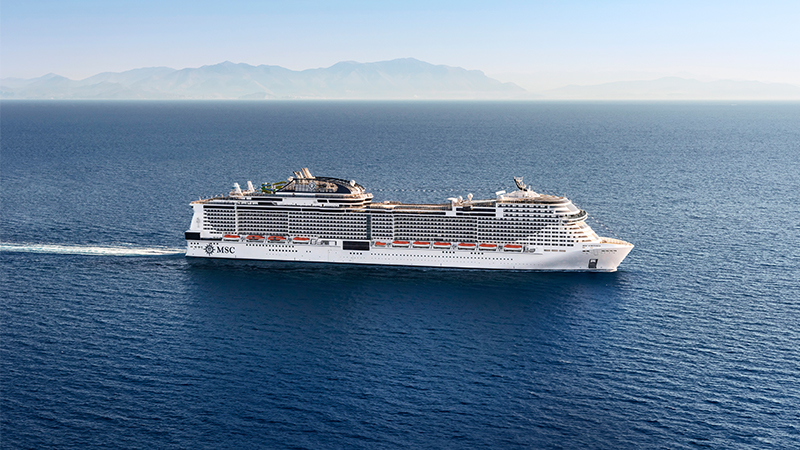MSC Cruises has announced the cancellation of three repositioning voyages scheduled for April, citing security concerns in the Red Sea. This decision underscores the company’s commitment to passenger and crew safety amidst regional instability.
By opting for alternative routes, MSC Cruises aims to mitigate potential threats, ensuring safer transit to European destinations. The affected voyages include significant journeys on MSC Splendida, MSC Opera, and MSC Virtuosa, impacting numerous stakeholders.
Impact of Red Sea Conflict on Cruise Operations
MSC Cruises has made the difficult decision to cancel three major repositioning voyages in April due to escalating security concerns in the Red Sea region. The company prioritises the safety of its passengers and crew amidst ongoing attacks on merchant vessels. The voyages include a 24-night trip on MSC Splendida from Durban to Genoa, a 21-night sailing on MSC Opera from Dubai to Genoa, and a 23-night journey on MSC Virtuosa from Dubai to Southampton.
The decision to reroute stems from a lack of viable alternatives that ensure the safety of passengers through the Red Sea. As such, MSC Cruises has opted to transfer the three ships directly to Europe without passenger transit, circumventing the conflict zone entirely. By choosing this path, MSC Cruises affirms its commitment to safeguarding its operations and clientele.
Passenger Alternatives and Compensation
Affected passengers have been promptly contacted and offered several options. They can transfer their booking to a future Grand Voyage of equivalent duration without any additional cost. Alternatively, passengers may choose to rebook any other cruise within MSC’s extensive network. In this instance, they may receive a partial refund or be required to pay the fare difference, depending on their selection.
For those unwilling to reschedule, a full refund is available with no cancellation fees. This flexible approach underscores MSC’s dedication to customer satisfaction and its readiness to accommodate passengers’ preferences in light of unpredictable circumstances.
Historical Context and Recurring Issues
The Red Sea region has long been fraught with conflicts that impact maritime travel. Only last year, MSC Orchestra was repositioned due to regional tensions and restrictions near Israel. Such incidents reflect persistent challenges faced by cruise lines in ensuring safe passage through geopolitically sensitive areas.
Previously, geopolitical unrest necessitated adjustments and rerouting to maintain security and operational efficiency. These reiterative events compel cruise operators to maintain agile strategies to adapt swiftly to changes in international safety standards.
MSC Cruises’ proactive stance in re-routing, despite potential commercial losses, highlights its prioritisation of safety over profit, ensuring sustained trust and reliability among its patrons and industry partners.
Security Measures and Strategic Planning
MSC Cruises’ strategic decision to avert the Red Sea demonstrates comprehensive risk assessment abilities. By circumventing the volatile region and charting a course along Africa’s west coast without stops, the company exhibits robust crisis management and strategic foresight.
These measures align with international maritime security guidelines, reflecting the importance of adaptive planning in cruise operations. MSC’s capacity to promptly coordinate logistical adjustments reaffirms its commitment to operational integrity amidst external pressures.
Broader Implications for the Cruise Industry
This situation with MSC Cruises underscores broader implications for the global cruise industry as geopolitical tensions continue to influence routing decisions. Cruise lines must remain vigilant, continuously assessing maritime risks and adapting routes to safeguard their operations. Such adaptability is crucial in maintaining industry stability and passenger confidence.
The necessity for dynamic itineraries reiterates the importance of crisis preparedness within the cruise sector. As external variables impact operations, strategies must evolve to address both passenger demands and safety standards.
MSC Cruises’ Proactive Customer Engagement
In response to the cancellations, MSC Cruises has showcased exemplary customer engagement by directly addressing passengers’ concerns and offering realistic alternatives. This initiative not only aids in retaining customer loyalty but also reinforces MSC’s reputation as a responsive and client-focused operator.
By ensuring transparent communication and flexible options, MSC Cruises effectively mitigates potential dissatisfaction, positioning the company as a leader in crisis management within the cruising industry.
Future Outlook for MSC Cruises
Looking ahead, MSC Cruises plans to strengthen its operational strategies to enhance resilience against geopolitical disruptions. This involves continually refining route assessments and improving crisis response protocols to adapt to volatile global conditions.
In addressing the Red Sea conflict, MSC Cruises exemplifies industry leadership by prioritising safety and customer satisfaction. This proactive approach secures its standing as a reliable operator amidst geopolitical challenges.
The company’s strategic actions and customer-centric policies have set a benchmark for handling similar disruptions in the future, ultimately enhancing trust and operational credibility.

